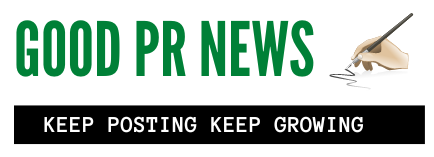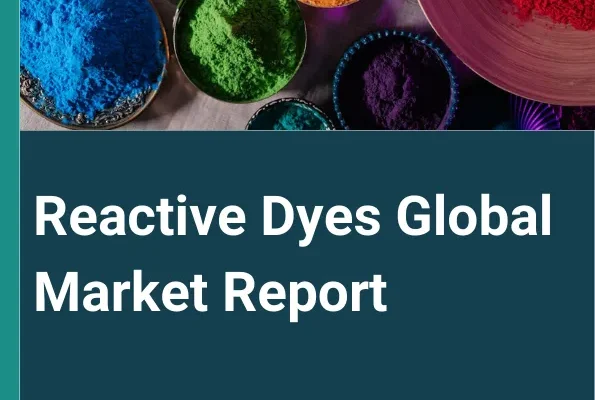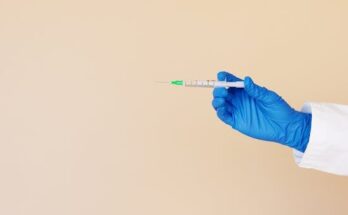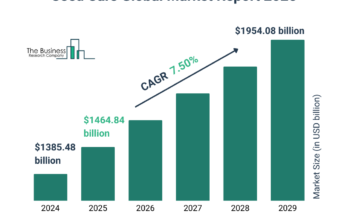The Reactive Dyes Global Market Report 2023, provides comprehensive information on the reactive dyes market across 60+ geographies in the seven regions – Asia-Pacific, Western Europe, Eastern Europe, North America, South America, Middle East, Africa for the 27 major global industries. The report covers a ten year historic period – 2010-2021, and a ten year forecast period – 2023-2032.
Learn More On The Reactive Dyes Market’s Growth:
https://www.thebusinessresearchcompany.com/report/reactive-dyes-global-market-report
As per The Business Research Company’s Reactive Dyes Global Market Report 2023, the market size is expected to grow from $2.37 billion in 2022 to $2.65 billion in 2023 at a compound annual growth rate (CAGR) of 11.6%. The Russia-Ukraine war disrupted the chances of global economic recovery from the COVID-19 pandemic, at least in the short term. The war between these two countries has led to economic sanctions on multiple countries, a surge in commodity prices, and supply chain disruptions, causing inflation across goods and services and affecting many markets across the globe. The global reactive dyes market size is expected to reach $3.86 billion in 2027 at a CAGR of 9.9%.
Get A Free Sample Of The Report (Includes Graphs And Tables):
https://www.thebusinessresearchcompany.com/sample_request?id=9549&type=smp
Product innovation is a key trend gaining popularity in the reactive dyes market. Major companies operating in the reactive dyes market are focused on developing new technological solutions to strengthen their position. For instance, in November 2021, Huntsman International LLC, a Germany-based provider of high-quality dyes, chemicals, and digital inks to the textile industry, launched the third generation of its revolutionary ‘AVITERA SE’ polyreactive dye. It is uniquely designed with unique low-temperature and high-speed wash-off technology that slashes the water and energy required for production by up to 50% and increases mill output by up to 25% or more. The dye has high chlorine resistance and is tailor-made for stringent Japanese and US laundering requirements.
The reactive dyes market is segmented:
1) By Type: Cold Brand Reactive Dyes, Hot Brand Reactive Dyes, Highly Exhaust Reactive Dyes, Mild Exhaust Reactive Dyes, Other Types
2) By Function: Monochlorotriazine, Vinyl Sulphone, Bi-Functional, Other Functions
3) By Application: Cotton, Paper, Nylon, Leather, Other Applications
Asia-Pacific was the largest region in the reactive dyes market in 2022.
The table of contents in TBRC’s reactive dyes market report includes:
1. Executive Summary
2. Market Characteristics
3. Market Trends And Strategies
4. Impact Of COVID-19
5. Market Size And Growth
6. Segmentation
7. Regional And Country Analysis|
.
.
.
27. Competitive Landscape And Company Profiles
28. Key Mergers And Acquisitions
29. Future Outlook and Potential Analysis
Learn About Us:
The Business Research Company is a market intelligence firm that pioneers in market, company, and consumer research. TBRC’s specialist consultants are located globally and are experts in a wide range of industries that include healthcare, manufacturing, financial services, chemicals, and technology. The firm has offices located in the UK, the US, and India, along with a network of proficient researchers in 28 countries. Through the report businesses can gain a thorough understanding of the market’s size, growth rate, major drivers and leading players.
Contact Us:
The Business Research Company
Europe: +44 207 1930 708
Asia: +91 88972 63534
Americas: +1 315 623 0293
Email: [email protected]
Follow Us On:
LinkedIn: https://in.linkedin.com/company/the-business-research-company
Twitter: https://twitter.com/tbrc_info
Facebook: https://www.facebook.com/TheBusinessResearchCompany
YouTube: https://www.youtube.com/channel/UC24_fI0rV8cR5DxlCpgmyFQ
Blog: https://blog.tbrc.info/
Healthcare Blog: https://healthcareresearchreports.com/
Global Market Model: https://www.thebusinessresearchcompany.com/global-market-model




